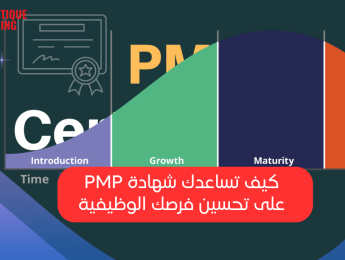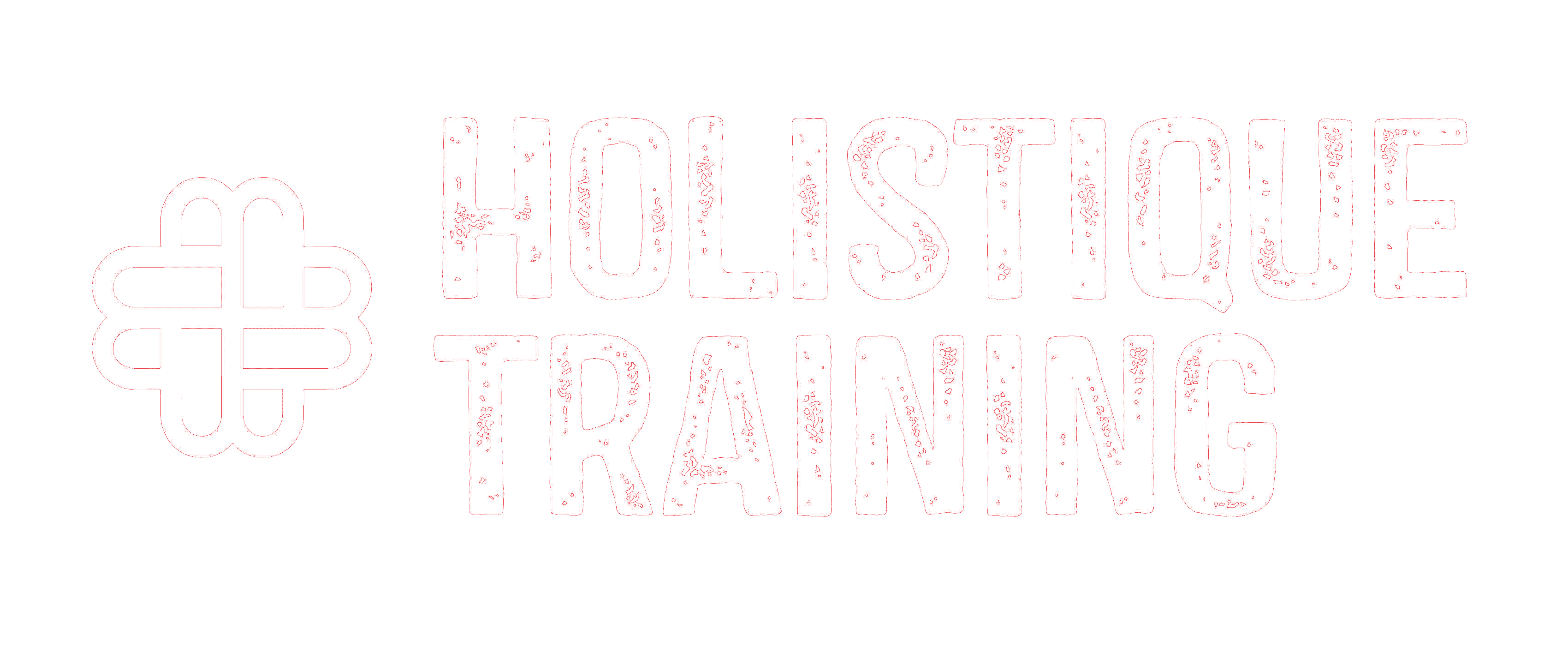- Table of Contents
- Introduction
- What Is an HR Business Partner?
- How Do Companies Benefit from HRBPs?
- Strategic Alignment
- Enhancing Organisational Culture
- Talent Acquisition and Retention
- Change Management and Organisational Development
- Risk Management
- HR Business Partner Salary
- HRBP’s Main Responsibilities
- Strategic Planning
- Employee Relations
- Talent Management
- Performance Management
- Training and Development
- 1- Resource Intensiveness
- 2- Scale and Structure
- 3- Skill Set and Training
- 4- Resistance to Change
- 5- Role Ambiguity
- 6- Time Constraints
- The Future of HR Business Partners
- Technological Integration
- Employee Well-being and Mental Health
- Globalisation and Cross-Cultural Competence
- Continuous Learning and Adaptability
- Ethical and Social Responsibility
- Conclusion
Introduction
Human Resources (HR) is a crucial department within any organisation responsible for managing employee-related matters. However, the role of HR has evolved over time, and one strategic position that has gained prominence is that of an HR Business Partner (HRBP). In this blog post, we will explore the concept of an HR Business Partner, discuss the benefits they bring to companies, delve into their main responsibilities, and shed light on the compensation they receive.
What Is an HR Business Partner?
An HR Business Partner (HRBP) is a strategic HR role that aligns human resource initiatives with business objectives. Unlike traditional HR roles that primarily handle administrative tasks, HRBPs work closely with business leaders and managers to develop and implement HR strategies that contribute to organisational success.
HRBPs act as trusted advisors, bridging the gap between the HR department and other departments within the company. They are key players in shaping organisational culture, enhancing employee experience, and driving employee engagement. HRBPs combine their deep understanding of HR principles and practices with thorough business knowledge to provide strategic HR guidance and solutions.
How Do Companies Benefit from HRBPs?
Strategic Alignment: HRBPs are pivotal in aligning HR strategies with overall business goals. They collaborate with business leaders to identify HR needs, develop talent management strategies, and create workforce plans that support long-term business objectives. By linking HR initiatives to organisational goals, HRBPs ensure that HR becomes an integral part of the company's strategic decision-making process.
Strategic Alignment
One of the primary benefits of having HRBPs in an organisation is their pivotal role in strategic alignment. Collaborating closely with business leaders, HRBPs ensure that HR strategies are not developed in isolation but are intricately linked with the broader business goals. By facilitating this alignment, HRBPs create a cohesive organisational roadmap where HR initiatives become integral to strategic decision-making processes.
This alignment is not a one-time effort but a continuous process, ensuring that HR practices evolve dynamically with the business's shifting priorities and objectives. The result is an organisation where HR is not just a support function but a strategic partner in driving overall success.
Enhancing Organisational Culture
Organisational culture is the heartbeat of any successful company, and HRBPs play a crucial role in shaping and nurturing it. Beyond merely enforcing policies, HRBPs act as cultural stewards, promoting values, ethics, and behaviours that resonate with the company's mission and vision. Through effective communication strategies, they disseminate the cultural narrative, fostering a positive work environment that is both compliant and inspiring.
Moreover, HRBPs champion diversity and inclusion initiatives, recognising that a diverse workforce brings a variety of perspectives that fuel innovation. They implement employee recognition programmes, celebrating achievements and reinforcing behaviours that align with the desired organisational culture. The result is a workplace where employees feel connected, motivated, and proud to be part of a distinct organisational identity.
Talent Acquisition and Retention
Attracting and retaining top talent is a perennial challenge for companies, and HRBPs are instrumental in surmounting this challenge. HRBPs collaborate with hiring managers and go beyond traditional recruitment processes. They actively participate in identifying talent needs, crafting comprehensive job descriptions, and formulating recruitment strategies that go beyond mere skill matching.
However, their role extends beyond recruitment. HRBPs assist in creating career development plans and mapping out trajectories for employees to grow within the organisation. They actively engage in performance management and employee engagement initiatives, ensuring that the workplace is not just a stepping stone but a nurturing ground for long-term professional relationships. This holistic approach to talent management results in a workforce that is not only skilled but also committed and motivated.
Change Management and Organisational Development
HRBPs facilitate change management efforts within the organisation. They help design and implement organisational development initiatives, such as training programmes, leadership development, and succession planning. HRBPs guide managers through restructuring processes, mergers, and acquisitions, ensuring smooth transitions and minimal disruption to the workforce.
In the realm of organisational development, HRBPs play a proactive role in designing and implementing initiatives such as training programmes and leadership development. These efforts enhance employee skills and ensure that the workforce is adaptable to change. By addressing the human side of organisational change, HRBPs build a resilient and agile organisation that can thrive in an ever-evolving business landscape.
Risk Management
Risk management is critical to organisational success, and HRBPs are the frontline defenders against HR-related risks. Ensuring compliance with employment laws and regulations is just the tip of the iceberg. HRBPs actively develop and implement policies and procedures that safeguard the organisation against potential HR pitfalls such as discrimination, harassment, and wrongful termination claims.
Equally important is their role in proactively addressing employee relations issues. By guiding managers in conflict resolution and creating an open communication channel, HRBPs mitigate potential negative impacts on the organisation. Essentially, they act as risk mitigators, ensuring the organisation operates within ethical and legal boundaries.
In essence, companies benefit profoundly from HRBPs by having strategic partners who not only understand the intricacies of HR but also possess a deep comprehension of the business landscape. From fostering a positive culture to navigating organisational changes, HRBPs contribute to creating workplaces that are compliant, dynamic, resilient, and geared for sustained success.
Aspect | Traditional HR Roles | HR Business Partners |
Focus | Administrative tasks | Strategic alignment |
Responsibility | Transactional | Strategic planning |
Interaction | Internal HR functions | Collaborative engagement |
Outcome | Compliance and paperwork | Contribution to success |
Table 1: Traditional HR roles vs. HRBPs
HR Business Partner Salary
The salary of an HR Business Partner can vary depending on factors such as industry, location, experience, and the organisation's size. On average, HRBPs earn a competitive salary, often higher than that of traditional HR roles. According to industry reports, the median annual salary for HRBPs in the United States ranges from $60,182 to $72,880.
It is important to note that in addition to base salary, HRBPs may receive additional benefits such as bonuses, profit sharing, health insurance, retirement plans, and other perks. Compensation packages are often structured to attract and retain top HR talent, acknowledging the strategic value they bring to organisations.
HRBP’s Main Responsibilities
Strategic Planning: HRBPs work closely with business leaders to identify organisational needs and develop long-term HR strategies aligned with business goals. They assess workforce capabilities, analyse talent gaps, and create plans to address them effectively. HRBPs also participate in strategic decision-making, providing valuable insights into the people-related implications of business initiatives.
Strategic Planning
Strategic planning is at the heart of an HRBP's responsibilities. Collaborating closely with business leaders, HRBPs identify organisational needs and develop long-term HR strategies that align seamlessly with business goals. They also conduct comprehensive analyses of workforce capabilities, identifying talent gaps and formulating plans to address them effectively.
This involvement in strategic decision-making sets HRBPs apart from traditional HR roles. By providing valuable insights into the people-related implications of business initiatives, they become strategic partners, ensuring that HR is an integral component of the overall organisational strategy.
Employee Relations
Effective employee relations are the bedrock of a positive work environment, and HRBPs play a crucial role in managing this aspect. They address employee concerns, mediate conflicts, and ensure fair treatment in compliance with employment laws and regulations. HRBPs act as advocates for both employees and the organisation, striving to create a harmonious workplace where individuals feel heard, respected, and treated equitably.
Beyond conflict resolution, HRBPs guide managers on performance management, disciplinary actions, and employee development. They are the go-to experts for navigating the complexities of employee-employer relationships, fostering an environment where employees can thrive and contribute to the organisation's success.
Talent Management
Talent is a valuable organisational asset, and HRBPs are responsible for developing and implementing comprehensive talent management strategies. This involves overseeing recruitment processes, collaborating with hiring managers, and ensuring that the organisation attracts and retains top-tier talent.
However, talent management extends beyond recruitment. HRBPs actively create development plans, provide coaching, and support employee career growth. They act as catalysts for continuous learning, ensuring that employees contribute to the organisation's current objectives and are prepared for future leadership roles.
Performance Management
Designing and implementing performance management systems is a key facet of an HRBP's role. They collaborate with managers to set performance goals, conduct regular evaluations, and identify areas for improvement. By actively participating in performance management, HRBPs ensure employee performance aligns with organisational objectives.
Moreover, HRBPs contribute to the establishment of recognition and rewards programmes. These initiatives go beyond monetary incentives, encompassing acknowledgement and appreciation for employees' contributions. The result is a motivated workforce that feels valued and is driven to excel in their roles. In fact, statistics show that an effectively crafted recognition programme has the potential to boost average employee performance by 11.1%.
Training and Development
Another critical responsibility of HRBPs is identifying training needs within the organisation. They work in tandem with learning and development specialists to coordinate the development and delivery of training programs. This involves designing initiatives that enhance employee skills, knowledge, and overall performance.
HRBPs continually evaluate the effectiveness of training programmes, making adjustments as necessary to ensure that the workforce is equipped with the skills required to meet evolving business demands. In an era of rapid technological advancements, HRBPs play a pivotal role in ensuring that employees are competent in their current roles and prepare for future challenges.
In summary, HRBPs are the linchpin connecting HR strategies with organisational goals. By actively engaging in strategic planning, managing employee relations, overseeing talent management, implementing performance management systems, and driving training and development initiatives, HRBPs contribute to the holistic development of the workforce and the organisation as a whole. Their role is not just about HR; it's about actively shaping the organisation's future success through effective people management strategies.
Limitations of Having an HR Business Partner
While HR Business Partners (HRBPs) play a crucial role in aligning HR strategies with business objectives and driving organisational success, it's important to acknowledge that this model has limitations. Understanding these limitations is vital for organisations to navigate challenges effectively and optimise the contributions of HRBPs.
1- Resource Intensiveness
Implementing an HRBP model can be resource-intensive, particularly for smaller organisations with limited budgets. The need for HRBPs to work closely with various departments and leaders demands a significant investment of time and effort. This resource demand may pose challenges for organisations with constrained HR budgets, potentially limiting their ability to leverage the strategic benefits that HRBPs can provide fully.
2- Scale and Structure
An organisation's scale and structure can influence the HRBP model's effectiveness. In larger organisations with complex structures, HRBPs may face challenges in maintaining a high level of personalisation and responsiveness across all business units. The sheer scale of operations can dilute the impact of HRBPs, making it challenging for them to address the unique needs of each department effectively.
3- Skill Set and Training
For HRBPs to be effective strategic partners, they need a unique skill set that goes beyond traditional HR competencies. This includes business acumen, strategic thinking, and navigating complex organisational dynamics. Ensuring that HRBPs possess these skills may require significant investment in training and development. The limitations arise if there is a gap in skill development, hindering HRBPs from fully realising their potential as strategic contributors.
4- Resistance to Change
Introducing the HRBP model often necessitates a cultural shift within the organisation. Traditional HR structures may resist the transition, and employees might be sceptical about the new role HRBPs play. Resistance to change can hinder the smooth integration of HRBPs into the organisation's fabric, potentially limiting the effectiveness of their strategic contributions.
5- Role Ambiguity
The evolving nature of the HRBP role can sometimes lead to ambiguity in expectations. As HRBPs take on strategic responsibilities, there may be challenges in clearly defining the boundaries of their role. This ambiguity can create confusion within the HR function and among other departments, potentially impacting collaboration and achieving shared goals.
6- Time Constraints
The demanding nature of HRBP responsibilities, particularly in strategic planning and collaboration with business leaders, can pose time constraints. HRBPs may be stretched thin, impacting their ability to provide personalised attention to all departments. This limitation could potentially hinder their effectiveness in addressing specific needs and opportunities within the organisation.
In summary, while the HRBP model offers substantial benefits, organisations must be aware of its limitations. Strategic planning, investment in training, effective change management, and a focus on role clarity are essential for harnessing the full potential of HRBPs while mitigating the challenges associated with this transformative HR approach.
The Future of HR Business Partners
As the business landscape continues to evolve, so does the role of HR Business Partners (HRBPs). The future holds exciting prospects for HRBPs, with several key areas emerging as focal points for their evolving responsibilities and contributions.
Technological Integration
The future HRBP will increasingly leverage technology for data-driven decision-making and strategic planning. Analytics tools will be integral to their toolkit, allowing HRBPs to assess workforce trends, identify areas for improvement, and predict talent needs. The integration of artificial intelligence (AI) and machine learning (ML) will further enhance HRBPs' ability to streamline processes, automate routine tasks, and make proactive, data-driven recommendations.
HRBPs will be at the forefront of adopting and implementing HR technologies that enhance efficiency, reduce bias, and provide valuable insights. This tech-savvy approach will position HRBPs as strategic partners who understand the workforce's human element and harness the power of technology to drive organisational success.
Employee Well-being and Mental Health
The emphasis on employee well-being and mental health is gaining momentum, and HRBPs will play an increasingly crucial role in championing these initiatives. Beyond traditional HR functions, the future HRBP will actively promote a workplace culture prioritising employee mental health, work-life balance, and overall well-being.
HRBPs will collaborate with healthcare professionals and mental health experts to design comprehensive well-being programmes. These initiatives may include mindfulness training, stress management workshops, and employee assistance programmes. Recognising that a healthy and happy workforce is more productive and engaged, HRBPs will proactively advocate for policies and practices that support employee well-being.
Globalisation and Cross-Cultural Competence
In an era of globalisation, HRBPs will navigate the complexities of diverse workforces. The future HRBP will possess a heightened level of cross-cultural competence, understanding the nuances of working with employees from different backgrounds and across various geographic locations.
Managing cultural diversity, fostering inclusion, and addressing global HR challenges will be paramount. HRBPs will be champions of diversity and inclusion, ensuring that organisational strategies align with the unique needs of an increasingly globalised workforce. This involves understanding cultural differences and leveraging them as strengths to drive innovation and collaboration.
Continuous Learning and Adaptability
The pace of change in the business world is accelerating, and HRBPs of the future will need to be continuously learning and adaptable. Rapid technological advancements, changes in market dynamics, and evolving workforce expectations will require HRBPs to stay ahead of the curve.
HRBPs will engage in lifelong learning, staying updated on the latest trends in HR, business, and technology. This commitment to continuous learning will enable them to anticipate and proactively address future challenges. Adaptability will be a core competency, allowing HRBPs to navigate uncertainty, lead organisational change, and ensure that the workforce is agile and resilient.
Ethical and Social Responsibility
The future HRBP will play a pivotal role in advancing ethical and social responsibility within organisations. As societal expectations around corporate responsibility continue to grow, HRBPs will be at the forefront of developing and implementing policies that prioritise ethical conduct, sustainability, and social impact.
HRBPs will actively advocate for diversity, equity, and inclusion within the organisation and in external partnerships and collaborations. They will champion initiatives that contribute to the greater good, aligning organisational goals with broader societal needs. This focus on ethical and social responsibility will enhance the organisation's reputation and contribute to employee satisfaction and engagement.
In short, the future of HR Business Partners is dynamic and transformative. By embracing technological advancements, prioritising employee well-being, navigating cultural diversity, fostering continuous learning, and championing ethical and social responsibility, HRBPs will continue to be instrumental in shaping the future of work. As strategic partners, they will play a pivotal role in ensuring that organisations adapt to change and thrive in an ever-evolving business landscape.
Conclusion
HR Business Partners play a critical role in modern organisations, acting as strategic advisors and driving HR initiatives that align with business objectives. Their responsibilities encompass strategic planning, talent management, employee relations, and performance management. By fostering a positive work culture, attracting top talent, and ensuring organisational success, HRBPs contribute significantly to companies' overall growth and prosperity. As HR continues to evolve, the role of HRBPs will continue to expand, making them indispensable assets for organisations worldwide.
And before you leave, if you’re looking to elevate your understanding of HR intricacies and learn to navigate the evolving landscape with finesse, make sure to check out our course, ‘An Introduction into Human Resources.’ Unleash the potential of HRBPs and chart a course towards organisational excellence. Enrol now to shape the future of HR!






















